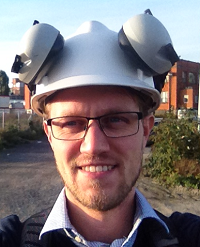Already during my years as a physics student, a learning revolution started to unfold. Broadband internet had become mainstream and a mismatch between the classic teaching formats and the expectations from young generations became clear. I, for example, rarely attended lectures in those years as for me it was much more effective to watch the recordings multiple times at home with varying video speed after which I pro-actively took part in group discussions.
Digital Learning Revolution
In 2012 two Stanford University professors decided to increase the reach of their teachings and launched coursera.com, which allows universities worldwide to provide courses online. For their initial online course, they had a staggering number of >100,000 students [1]. In the years that followed many new digital concepts got a hold of educational institutions, such as flipping-the-classroom: watch lectures at home, perform “homework” in class.
Simultaneously, in many business fields like software development and finance, online learning converged to large online platforms with high volumes of coherent content made by a multitude of experts. These innovative platforms facilitate individual end-users with high-quality content, a good look and feel, personal learning paths and tutoring features. Additionally, their scale allows services to employers like data insights to spot skill gaps in teams, course allocations, IT-integrations, etc.
Engineering Professionals
For engineering professionals, these online developments provide huge potential. Traditional classroom training is under pressure since courses are not always available right the moment they are needed or might get canceled last minute due to lack of local attendance. Travel investments from either the trainer or participant are often a significant part of the costs due to the international nature of the industry.
On the other hand, increasing skill-gaps and high retirement rates require young engineers worldwide to receive high levels of training to gain expertise quickly. Modern online training methods can overcome these challenges as courses are available right on time, can be performed multiple times and utilized by large numbers of employees.
Building the future
EngineeringTrainer provides this solution for the Engineering community. Today, EngineeringTrainer hosts 53+ hours of training material for engineering professionals, with an initial focus on industrial piping topics. We will release many new courses in Q1-2020, such as our Pipe Stress Engineering Fundamentals course.
A team of engineers, graphical designers and marketers collaborate with industry experts to produce and market high-quality e-modules through our learning platform. We provide professional modules to individual users online, available anytime, anywhere. Employers will receive additional benefits like IT-integrations and management dashboards. Content is produced on request of companies that want to train their engineering teams.
Our portfolio covers:
- Primers & refreshment courses: Allowing engineers to get a multidisciplinary perspective on technical subjects.
- In-depth modules: Teaching backgrounds to create a deeper understanding.
- Update courses: Covering discipline developments like new releases of Design Codes.
- Software modules: Getting new users up to speed and explaining new features to experienced users.
I invite engineers, team managers and HR professionals to join our mission to provide modern digital training to engineering workforces and educate the field experts of the future. Click here to take a look at our upcoming release or to contact us.
About the author
After working for many years as an engineering consultant in the Oil & Gas industry, Luuk Hennen became managing director at EngineeringTrainer where he realizes high-end online courses for engineering professionals together with industry experts.
Luuk combines his experience in engineering with a strong passion for teaching to add value to fellow engineers worldwide. As a consultant Luuk taught several engineering courses around the world. He holds a master’s degree in Applied Physics from the Eindhoven University of Technology.
Engineering | EngineeringTrainer.com | online learning | eLearning | teaching | learning revolution
